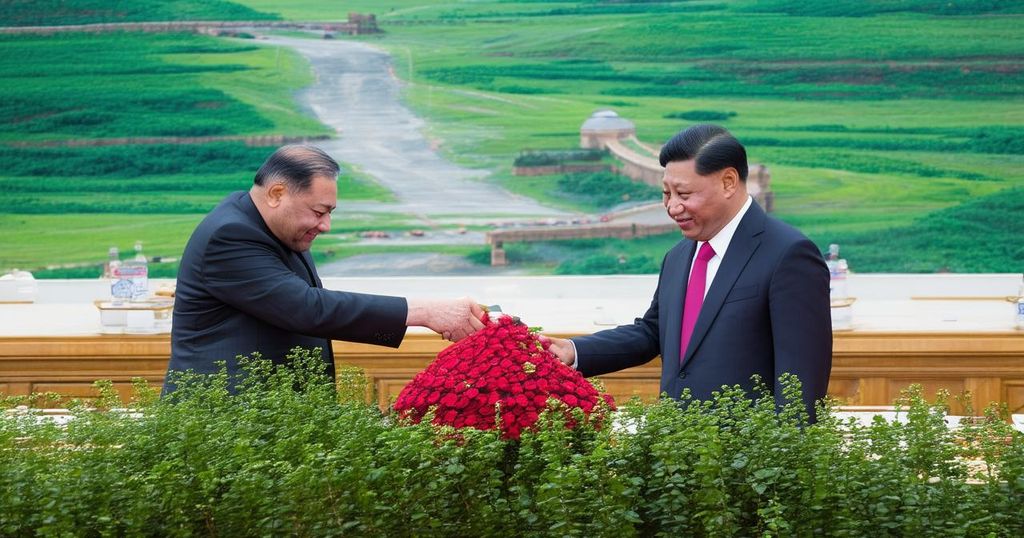Modi and Xi’s Historic Meeting Amid Border Accord: A Step Towards Stability
During the BRICS Summit in Kazan, Russia, Indian Prime Minister Narendra Modi and Chinese President Xi Jinping held their first bilateral meeting in five years on October 23, 2024. The meeting followed a recent border accord aimed at resolving tensions stemming from a military standoff in Ladakh. Both leaders emphasized the importance of amicable dispute resolution, and the condition of bilateral relations is expected to positively impact regional peace. This significant diplomatic engagement signals potential thawing of relations and renewed dialogue between the two nations.
In a significant development during the ongoing BRICS Summit in Kazan, Russia, Indian Prime Minister Narendra Modi and Chinese President Xi Jinping engaged in their first bilateral meeting in five years on Wednesday, October 23, 2024. This meeting occurred shortly after the two nations reached a critical border accord aimed at resolving a prolonged military standoff in Ladakh, which has persisted for four years. The Ministry of Information and Broadcasting of India shared images of the leaders shaking hands, underscoring the contextual backdrop of their national flags. During the meeting, both leaders emphasized the necessity of managing their disputes amicably. President Xi remarked that the two countries are at a pivotal juncture and “should carefully handle differences and disagreements and facilitate each other’s pursuit of development aspirations.” He further highlighted the importance of international responsibility, advocating for a unity that would enhance the collective strength of developing countries and contribute to a multipolar world. India’s Foreign Secretary, Vikram Misri, conveyed to reporters that the leaders recognized that stable and predictable relations between India and China, as the two largest neighboring nations, would positively influence regional and global peace. The recent border accord, announced by India on October 21 and subsequently confirmed by China, includes an agreement on resuming military patrols along their disputed Himalayan border following the deadly military clash in 2020 that claimed the lives of soldiers from both sides. The accord is expected to facilitate the disengagement of troops stationed at the contentious Line of Actual Control, thereby potentially easing tensions in the region. This diplomatic engagement marks the first formal conversation between Modi and Xi since 2019, a period that has seen heightened military and economic tensions, including stalled investments and bans on Chinese applications in India due to security concerns. Despite previous confrontations, including a historical military conflict in 1962 and the recent standoff, both nations maintain extensive economic ties, with bilateral trade experiencing substantial growth over the past two decades. As the snow sets in Ladakh, troops from both countries remain deployed along the frontier, signifying the enduring complexity of their border disputes. The recent developments, including the border pact and high-level discussions, may signal a thaw in relations, promising a pathway for improved cooperation and dialogue between the two regional powers.
The context of the meeting between Indian Prime Minister Narendra Modi and Chinese President Xi Jinping is rooted in the protracted border disputes that have historically characterized India-China relations. Following a deadly clash in 2020, tensions escalated, resulting in significant military buildup along the contentious Line of Actual Control in the Himalayan region of Ladakh. The agreement reached prior to their meeting was a pivotal attempt to de-escalate tensions and restore some level of stability in border management. In light of this historical backdrop, the leaders’ meeting symbolizes a critical turning point in diplomacy between the two nations, with broader implications for regional stability and economic cooperation.
In conclusion, the bilateral meeting between Prime Minister Modi and President Xi signifies a potential turning point in India-China relations, especially in the wake of a recent border accord aimed at mitigating longstanding conflicts. Their commitment to resolving differences highlights a desire for constructive dialogue, which may facilitate improved diplomatic and economic engagements moving forward. As the two nations navigate their complex historical narrative, this meeting lays a foundation for potential stability and cooperation in the region.
Original Source: apnews.com








Post Comment